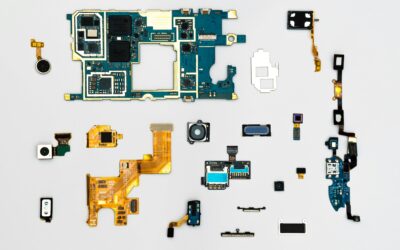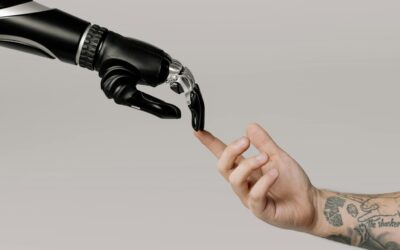Being Broke is the Worst: How to Knock it Off
Being broke is the worst. Why do we screw ourselves over, and what can be done about it? George talks about how to break free for good!
Listen to us On
About the Episode
Being broke is the worst. Why do we screw ourselves over, and what can be done about it?
George answers a question from the mailbag, talks about why we screw ourselves over when it comes to life and money, and most importantly, how to break free from this vicious cycle.
Get your copy of the Purpose Book here:
https://moneyalignmentacademy.thinkific.com/courses/the-purpose-book-course
Did you get anything out of this episode? Do us a solid and leave a review:
https://ratethispodcast.com/alignedmoneyshow
Learn more and engage at MoneyAlignmentAcademy.com, Twitter, LinkedIn, Instagram, YouTube and Facebook.
Buy George G a coffee (he loves coffee)
https://www.buymeacoffee.com/lifeblood
Have George G speak
https://moneyalignmentacademy.com/speaking/
Financial literacy and wellness for individuals, families, and companies
https://moneyalignmentacademy.com/
Find George G’s books here
The Aligned Money Show is the podcast for Money Alignment Academy, copyright 2024.

George Grombacher
Host
Episode Transcript
Alright, the what we’ve got here this week’s letter comes to us from little Marco. Little Marco writes, being broke is the absolute worst. How do I, how do I stop being broke? Great question. It’s a great question. Well, Marco, thank you so much for writing in. I’ve got certainly a lot of thoughts on this one. First one being that being broke. It is the worst, but it is most commonly a self inflicted phenomenon. Very, more often than not, it’s because just Oh, something that we did to ourselves over something happening to us. Now, there are plenty of cases where it is not that where it’s not self inflicted, where I got an accident, I got sick, or somebody that I care about, got in an accident or got sick. So there’s all these medical bills. And those can sometimes be literally impossible to get out from underneath. And that, my friends is super sucky. So if that’s the situation, you’re in my heart most certainly goes out to you. But for the rest of us, myself included, being broke is a self inflicted wound. It’s similar to other common and self inflicted wounds, but different to things like accidentally cutting ourselves when we’re using a kitchen knife, or we’re using a pair of scissors, and we stopped paying attention and you know, oops, kind of like an accidental burn from hot surface, you know, cooking on the stove, got steam, we got hot water, we got just the actual cooktop itself, you’ve got a million accidental injuries for bumping into objects are falling. I mean, I’ve learned that it’s not good for human being my age to be going up on a ladder unless somebody is holding that ladder. So something for you to consider. So there’s so many different ways to fall down and hurt ourselves or for playing pickleball, which I’ve myself gotten into. But basketball, you name it skiing, holy cow, so many different ways to mess ourselves up. We can poison ourselves, get ourselves food poisoning, there are just so many different ways we can get after it way too hard at the gym. You know, think about David Goggins million different ways if we listen to one of his books, and we really want to get after it and do all that. There’s negative self talk, and we can self sabotage ourselves, which is getting a little closer to what I really want to talk about today. But certainly different opportunities for us to screw ourselves up doing dumb stuff. You know, what else is really awful, terrible self inflicted wound, spilling a large quantity of liquid ever dropped an entire bottle of wine. You ever, in an effort to transfer a large pot of chili, dumped it, give it dumped a gallon of milk, just kind of open it up, go to pour, it just hits the ground and we’ll go global catastrophic messes. Or we can hurt ourselves by eating an entire container of ice cream in one sitting. That can be a quart size. It could be a half gallon could be a gallon, whatever. Have you ever bought a Sam Smith song and listen to it? What about drinking several bottles of wine and then just say theoretically, you had to take care of three children the next day? Not ideal suboptimal? Terrible. What about just having a job? Oh, what about having to work full day at that job on a Friday? Brutal? What about watching corporate news? What about watching The Big Bang Theory? These are self inflicted wounds. What about can you even imagine going? Going to a WNBA game? What about going to a child’s birthday party? That’s never a good idea. What about going to a child’s birthday party without any booze? Are you noticing the theme going on with the self inflicted one? Thanks anyway. You got any good ones? You know, it’s kind of a fun thought exercise, if you can call it that. Just write down ways we screw ourselves over stupid things we do it for to to ourselves. I’d love to hear your input. Go ahead and hit me up. But let’s get back on track being broke is the absolute worst. How do we stop doing it? Now I think that the best way for me to illustrate how to stop being broke is just to use my lived personal experiences. So let me tell you a story. And you’ve maybe heard this one before. I talked about quite a bit, because I think it’s important and it bears repeating things that I don’t know, if you identify with me at all, maybe a little bit, some areas, other areas not so much. But certainly, when we’re talking about being broke, I’ve got a good amount of experience in that area. Um, so let me tell you that story again, growing up, I grew up in a lovely, lovely town in northern Minnesota called Duluth, it’s about 80,000 people, right on Lake Superior, gets a little cold. That’s not really part of the story, though. And wonderful working class existence, had a wonderful childhood, great schooling, all that stuff. But like so many of us, there was just never enough money to go around, we were, for all intents and purposes broke. My mom was a school teacher. And believe it or not, they still didn’t pay school teachers very much back then. Just to the point that don’t pay much to them now. And my folks split up when I was five years old. So raised by my mom. And, again, great experience. But one of the key things, key takeaways are key things to point to that informed a lot of my life moving forward was that time at five when my folks split up, but then just observing my mom trying to make ends meet. We were again, very much in that cycle of living paycheck to paycheck and trying to stretch every dollar as far as it could possibly go. And once a month, my mom would pay bills. And that meant she would literally spread all of our bills out on our big wooden dining room table. And she’d have her checkbook out, she’d be trying to figure out okay, can I can I delay payment on this one or which one needs to get paid right away? And how am I going to figure all this out, and my older brother, John, he and I knew that we just needed to stay away from mom, during that time, because it was a super stressful time, there’s a lot of anxiety. And again, it’s trying to figure out how to make it all work, which I think you could probably identify with at some point in your life, maybe even right now. But that that taught me just month after month, year after year of observing this that money is something to be avoided. financial matters are something to push off to not worry about, they are causing anxiety. And when I say not worry about I mean very much worry about it, but try to kick can down the road trying to punt, see if I can come up with another metaphor. You get the idea of so it really ingrained scarcity ingrained not enough. And I found myself getting into financial services right out of college, and able to have success. Yet same time. Even though I was working in personal finance. I avoided all things financially from a personal financial standpoint. So I waited till the last minute to pay my bills. I lived paycheck to paycheck. I use credit cards and rollover balances month to month to month, year after year after year. I can specifically remember I don’t know if it was a specific vodka soda or a Coors Light that I was drinking. But I put it on a credit card and probably paid for it for 10 years. Just pure stupidity. Again, whole theme here is self inflicted wounds. And at one point, I I pondered setback, I thought to myself, Why? Why do I keep screwing myself over? Why am I avoiding financial matters? I’m certainly making plenty of money, but it just comes into my hands and falls right out of it. So that the desire to become more efficient to have more energy to figure out why I was making so many steaks, somehow led me to learning about limiting beliefs. That was the first time that I discovered that YouTube was for more than just funny cat videos. It certainly is for funny cat videos, but there’s much more. And so I started learning about limiting beliefs. I started learning about
you know, essentially kind of your self imposed glass ceiling or glass box or cage that I’d like to talk about. It’s you can’t see it, but but it’s there. And historically speaking, glass ceiling is when we’re trying to climb the career, corporate ladder and we keep bumping into it. But it can take many forms and limiting beliefs are self imposed. glass ceilings, can be true of your feelings on success. As relationships or just a healthy body, and 100%, for money as well. And as I started to learn about that I started realize that I’ve got this programming, we all have an operating system that’s running 24/7, just like our phones have an operating system that’s running 24/7. And it’s all subconscious, it’s helping us make good decisions about things. Or rather, that’s the wrong term, it’s helping us make decisions about things, it’s estimated that we make human beings run 36,000 decisions every day. So if we were making those consciously, we would, you know, quite obviously, not be able to do anything other than simply be making these decisions. So our operating system is, theoretically speaking, benefiting us. Now, that’s all contingent upon whether or not our operating system is actually benefiting us. Or in my case, and potentially your case, too. It limits our overall ability to realize the level of success that we really desire. That’s why they call it a limiting belief, because it is keeping us from doing what we truly want to do. So you start to peel back those layers, and you keep digging deeper and deeper. And I learned that a lot of what our operating system is, and what our beliefs are about the world are given to us from above birth to age seven. So there you go. So for me, it was observing my mom struggling financially, and struggling to make ends meet. And then also that my folks split up during that time. So I had a lot going on, one of the primary things was that of scarcity, and not having enough. And while I think that a lot of that was because of the financial piece, it touches every other aspect of life as well. Versus the opposite is feeling that there’s plenty, there is an abundant amount of whatever it is that you feel, there’s not enough of. And when you start pulling those strings, and you start investigating, you start to realize, Wow, this is showing up in most every aspect of my life. And a big part also, is that I felt a sense of powerlessness. As a young person, I felt, I felt that I was frequently taken advantage of back some 45 years old, and divorce feels ubiquitous today. I really, for the most part, it doesn’t seem it feels like that’s it, it’s that big of a deal. But that wasn’t the case, 40 years ago, there was still a lot of shame around it. And I know for a fact that my mother did a wonderful job raising us. But I also think that society didn’t necessarily think that being a single mother was a good thing back then. And that a lot of people didn’t feel like women were on the same plane, or the same equal footing as men were. And I remember feeling like I was taken advantage of. Now, whether it was true or not, that’s just the way that I felt about things felt powerless, felt like I was getting screwed over mistreated, lots of other lousy feelings. And again, some of that precedes some probably true, but fundamentally, I think that the best way to describe the way that I was operating in the world and did for a really long time from about probably age five to around age 30. Was that of really operating in? What is the right term for it, really survival mode, feeling like I was operating in survival mode, just not enough. I need to go out and, you know, hunter gatherer, whatever, every day, so constantly on edge constantly not feeling at peace. And a big part of it is that I didn’t feel worthy. So I had a really strong sense of unworthiness. And again, I’m not saying that any of this was correct. I had a wonderful childhood. It’s just the way that I felt. And I carried that with me for a long time. So whether you think that’s appropriate, you think it’s dumb or stupid, whatever. That’s just, it’s just looking back. When I was trying to connect the dots for me in my life. Why was I operating the way that I was operating in the world? It’s because of that. Now, so day to day, I can report I have a reasonable self worth and I feel deserving of the financial success that I both have, and that I want to have in the future. And that is hard won knowledge on my part. And I discover, talking to a lot of people about money, talking to a lot of people about success, and good relationships and being healthy and self improvement. In all these things being well, that many people also have these wounds, and trauma, some really blatant, obvious you were a victim of a violent crime or something terrible. But then plenty of people like me who I was not. But the worst thing that’s ever happened to us is still the worst thing that’s ever happened to us. So I never want to diminish what somebody feels. I don’t know if that’s true or not. I try not to diminish the way that people feel about things. That being said, I am interested in helping people and myself also to not just go through life as a victim, because I don’t think that benefits anyone at all. I want to help people become survivors. So the whole idea here is try to get back on topic, as I probably will go off topic, again, is the idea of how do I stop screwing myself over? Why am I so bad at money being broke is the absolute worst. And I think that for many of us, when we find that we have limiting beliefs about these things, and it’s stemming from Nevitt, negative experiences in our youth, the more we can become aware of those things, then we can set about actually addressing them. So here’s a bottom line is that I know that you’re worthy. I know that you are deserving of everything that you want, financially, everything you desire, financially, I think that you deserve it. But none of us are entitled to it. I think you’re worthy. I think you deserve it. But we’re not entitled to it, nobody’s gonna hand it to you. We have to do the work, to go out and put ourselves in position to be successful, and let the chips fall where they may at that point. So how do you do it? Me just telling you to do that is not helpful. I’m interested in being helpful. So number one, number one, I believe we have to accept ownership, or our financial success, we have to accept ownership of our financial success. It’s not, I hope somebody comes and gives you a bunch of money. But even if they did, even if they did, that wouldn’t solve any problems. If you have underlying problems and issues, simply giving you money is not going to do it. Look at people who win the lottery, look at people who are flat broke, and win the lottery, they’re rich for a couple of years, but then they go back to being flat broke. So we need to do the work, we need to accept ownership of our financial success. And part of that is just deciding how we want to feel about things. It’s a chicken in the egg kind of thing, do I have to become financially successful in order to start feeling financially successful? Because that may never happen. If I don’t make the decision on how I want to feel and do the work of identifying any limiting beliefs, I’m gonna have a hard time becoming financially successful. So I think you understand what I’m saying. So one of our superpowers as human beings is that we get to decide we have choice over how we think, feel and respond to the circumstances of our lives. So you get to you get to decide how you want to feel about money, somewhere. Number two, is we get to interrogate our reality, and explore any of those limiting beliefs that we have. So
target reality, look and see, where is it that I am screwing myself up. And it’s all in our subconscious. It’s in that operating system that I was talking about. So there’s a lot that goes into that, and I’ve talked a lot about it. More importantly, you can have, I wrote a book called The purpose book. And a big part of that is that are our beliefs. That’s who we are, which is what I’ve been talking about. And there’s a whole chapter in there about that, about how to figure out to have limiting beliefs, and what do I do when I identify them? And I’m not selling the book, I am, but you can also get a PDF copy for free on the website. So I’ll link to that in the in the notes and take advantage of it. Step number three, is your level of financial literacy. Are you financially literate? That’s not obvious to me? Do you understand how the important money things in your life work? You have to work at a company they offer a 401k? Do you understand how it works? Do you understand how much you need to be contributing in order to get the result that you want? Do you understand how your taxes work and insurance and all that stuff? It’s not an inconsequential amount. In fact, it’s gigantic and it’s enormous. So how literate are we so you need to become financially literate, at least enough so that we’re not screwing ourselves up and blowing ourselves up. And step number four is we want to make plans. This is where we use our conscious brain conscious part of our mind to to imagine the future that we want, which can be anything. And we make plans for bringing that desired future into our current reality and then we execute those plans. That’s a superpower. Next step, step five is to execute your plans. So create habits around doing what must be done in service of the thing that you actually want. So there’s an acronym I like to use called Duff. So D stands for desire. So do you want this thing in this is in terms of creating a habit? Do you want to do this thing? If you don’t want to? You’re not going to do it. So you have to want to U is for understanding? Do you know how to do it. That’s the literacy piece. Do you know how to do the things that you’re wanting to do? And there’s so many resources that are available to help you to do that to get the information that you need. And then finally, the F stands for fit to where is it going to fit. And the best way to create a new habit is to look and see what habits you currently have. So you’ve got a habit of waking up in the morning. And then you have a routine that you follow. I don’t care what time it is. I don’t care what the routine is. But there’s things you do. So and this is true of how you do most everything we follow very predictable patterns and habits are Yeah. So where can this new habit that you want to create? Where can it fit sort of piggyback dovetail right on one thing that you’re already doing? So kind of bring up to kind of bring everything home here? Do you feel worthy of the financial success that you desire? If you don’t, that’s perfectly okay. Again, I did not for a really long time, but I know that you are, I know that you are worthy of it. So I want to give you permission to feel whatever way that you want to feel. Don’t feel guilty, don’t feel ashamed. We get one crack at this deal. So start feeling however you want to feel and do it on a bottle unapologetically, you can do it. You’re fully capable of getting whatever you want financially. There’s a great thought exercise that tells us that if you were walking past body water and see you’re out in a walk, and there’s a pond around in a park that you’d like to walk by, and you see on the pond that there’s a child, let’s pretend it’s little Marco, who wrote us the letter today. And he’s struggling to swim, that you see a good person that you are, would jump into the water and attempt to save little Marco. Thank you for doing that. And well Marco before I go any further. Thanks for the thoughtful letter today. So can you extend yourself? Will you extend yourself that same courtesy you went out of your way jumped in the water you jumped in the pond could be gross, I don’t know. swam out there, save Marcos life. You are worthy of that same treatment. Save yourself. Give yourself the hand that you need. Do the work. Being broke is the frickin absolute worst. It doesn’t have to be that way. It’s not going to just snap your fingers go away and be all better. But again, you’re worthy of it. You deserve it but you’re not entitled to it really reminded there’s never going to be anybody. There’s never going to be anybody more interested in your financial success than you are. So act accordingly.
More Episodes
Beyond the Bank Balance: Cultivating a Soulful Relationship with Money
You don’t need to be a Wall Street shark or a personal finance guru to develop a healthy relationship with money. In fact, most of us start with little more than a jumble of beliefs and habits passed down from our families. But if you’ve ever found yourself stressed...
How Using AI Can Help You Gain Clarity Into Your Financial Future
In today's fast-paced, data-driven world, achieving financial clarity can feel like an overwhelming task. With numerous financial decisions to make—from budgeting and investing to retirement planning and debt management—it's easy to feel lost in the complexity of it...
How AI Can Help Improve Your Personal Finances
1. Smarter Budgeting and Expense Tracking AI-powered tools like Mint, You Need a Budget (YNAB), and PocketGuard can automatically categorize your expenses, track your spending in real time, and even alert you when you’re about to exceed your budget. These tools...
Trust and Confidentiality When Using AI as Your Financial Coach: Safeguarding Your Sensitive Data
In the digital age, artificial intelligence (AI) has revolutionized many aspects of our lives, including personal finance. AI-powered financial tools have become a go-to resource for budgeting, investing, debt management, and even retirement planning. But as more...
How AI Can Be Your Personal Financial Coach: Unlocking the Future of Financial Success
In today’s fast-paced world, managing your finances can feel overwhelming. With so many options for saving, investing, and budgeting, it can be hard to know where to start or how to stay on track. Fortunately, advances in technology—specifically Artificial...
How Technology and AI Are Benefiting Investors and Consumers in Securing Their Personal Financial Futures
In recent years, the rise of technology and Artificial Intelligence (AI) has profoundly transformed the financial landscape. These advancements have empowered investors and consumers to make more informed, efficient, and personalized decisions about their financial...
10 Things New Parents Should Be Thinking About Regarding Their Personal Finances
Becoming a parent is one of the most joyful and transformative experiences in life. However, it also brings new financial responsibilities and challenges. If you’re a new parent or expecting, it’s crucial to plan ahead to ensure your family’s financial security. Here...
10 Things Newlyweds Should Be Thinking About Regarding Their Personal Finances
Marriage marks a new chapter filled with excitement and partnership. While love may be the foundation, financial harmony is key to building a stable and happy life together. To set yourselves up for success, here are 10 essential financial topics that every newlywed...
Financial Tips for New Parents: Building Stability and Security for Your Growing Family
Becoming a parent is one of life’s most rewarding experiences, but it also brings significant financial challenges. From diapers to daycare, the costs add up quickly. Whether you’re a first-time parent or adding to your family, managing finances wisely is crucial for...
Join the show.
Interested in being on the show? Tell me a little bit more about you and what you’d like to talk about!














